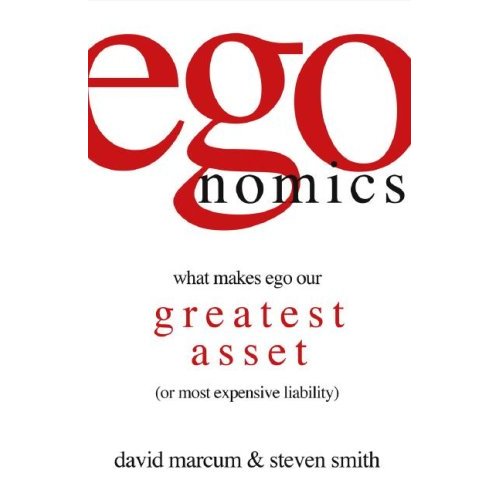
Pre-publication Contents
1 ego and the bottom line
why managing the power of ego is the first priority of business
2 the ego balance sheet
4 early warning signs that ego is costing your company, and the 3 principles of egonomics that turn it around
3 early warning sign 1 Being comparative
how being too competitive can make us less competitive
4 early warning sign 2 Being defensive
the difference between defending ideas and being defensive
5 early warning sign 3 Showcasing brilliance
how intelligence can crowd out wisdom
6 early warning sign 4 Seeking acceptance
how our desire for respect and recognition gets in our way
7 humility
humility that opens minds and creates opportunity for change
8 humility, part II: intensity and intent
using humility as a bridge to turn silence or argument into vigorous debate
9 curiosity
how different types of curiosity unlocks our minds and conversations
10 veracity
how to make the undiscussables discussable, and closing the gap between what we think is going on, and what's really going on
# What separates average job holders from top performers? That difference is often chalked up to vision, leadership, talent, execution, or management skill. Before all else, what separates the two is the most pervasive, powerful force in business for good or bad-ego. Injected into every team conversation, boardroom debate, marketing strategy, client interaction, contract negotiation, employment interview, or performance review is the intense, pervasive power of ego.
How we invest it in the way we work, and the return ego delivers to us and the company, depend entirely on the skill with which it's used. The question is: how will we know if we're getting a return? After five years of research, consulting, and teaching, Marcum and Smith's new book, egonomics, breaks new ground with answers.
* Does our ego drive help, or get in our way?
* Are there habits we can develop that manage the drive of ego?
* Should it be managed in the first place?
* If humility is powerful, why don't more of us have it?
* Are ego and humility at odds with each other?
* If they're not, what does the right amount of ego look like, sound like, and think like?
* Can we learn to be humble?
* If ego and humility can't co-exist, what has to give, and what change is required?
Egonomics is the result of the answers to those questions. The authors believe these findings can turn ego from a consistent, costly liability to a fixed, appreciating asset. If people know how to use it effectively, the upside of ego is just as powerful as the downside. When we don't manage the intense power of ego effectively, it damages our strengths and turns them into weaknesses. Through ego's overconfidence, overambition, insecurity or me-centered agenda, our talents take on a slightly different appearance, but have a noticeably different impact.
- Pub. Date : September 4, 2007
'Book > Review' 카테고리의 다른 글
| 위키노믹스(WIKINOMICS) (0) | 2007.06.29 |
|---|---|
| 협상게임 (The Negotiating Game) (0) | 2007.06.22 |
| 중국이 세계를 바꿀 때(Quand La Chine Change Le Monde) (0) | 2007.06.22 |
| 극단적 미래예측(The Extreme Future : The Top Trends That Will Reshape the World for the Next 5, 10, and 20 Years) (0) | 2007.05.25 |
| 행동 경제학 : 경제를 움직이는 인간 심리의 모든 것 (0) | 2007.05.19 |


